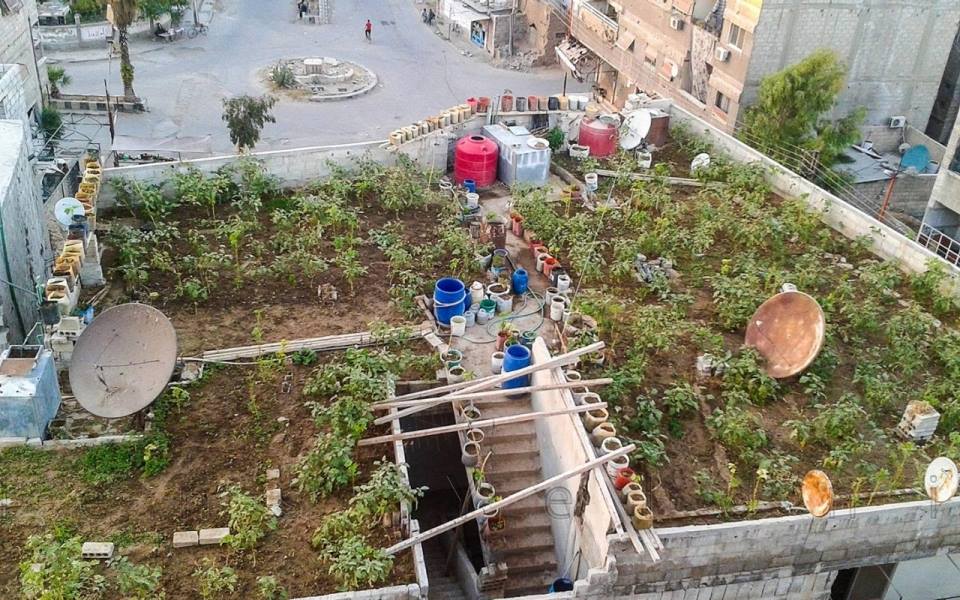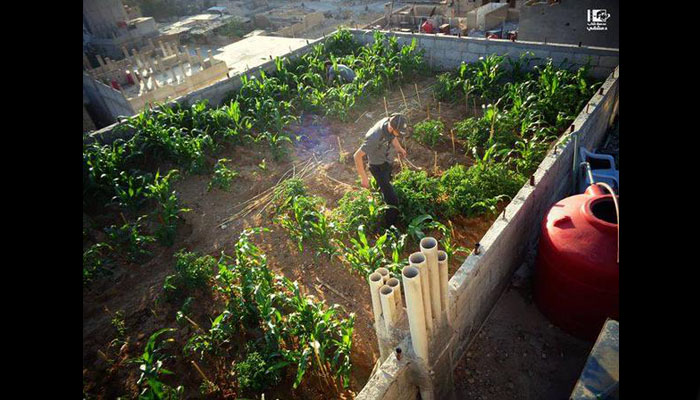The countryside of Damascus (Ghouta) has been under a blockade by the Syrian regime for more than three years. Foodstuffs, as well as medicine, have been forbidden entry to the region, and roads are watched over by snipers from all sides. Most of the agricultural lands in the region is also within the sight of Assad’s snipers, and thus can not be utilised. This makes food supplies the most urgent, and daily, struggle for the survival of the local inhabitants.
In the towns of Bebbila and Yalda, an innovative solution to the problem of cultivating necessary food has been found: small farms situated on the roofs of houses, and away from sniper fire. “By placing a little bit of earth on the roof, and using smuggled seeds, we can cultivate some amounts of tomatoes, peppers, eggplants and cucumber,” says Abu Farouk.

Successful roof farming faces many obstacles, however. First of which is the difficulty of moving earth to the roof without specialist equipment. Moreover, the lack of water and the difficulty in acquiring suitable seeds are also a major concern. Finally, while the danger from snipers could be avoided on rooftops, the danger of aerial bombardment remains a significant issue for many people.




